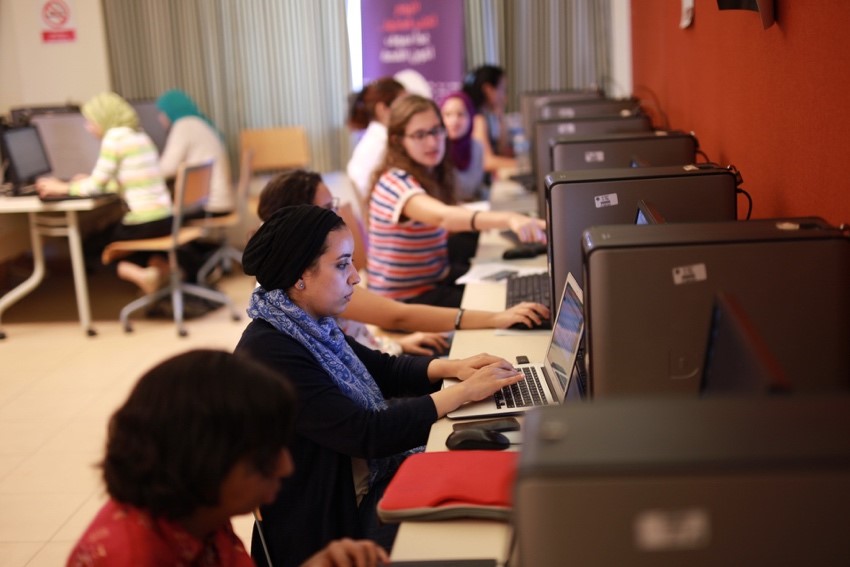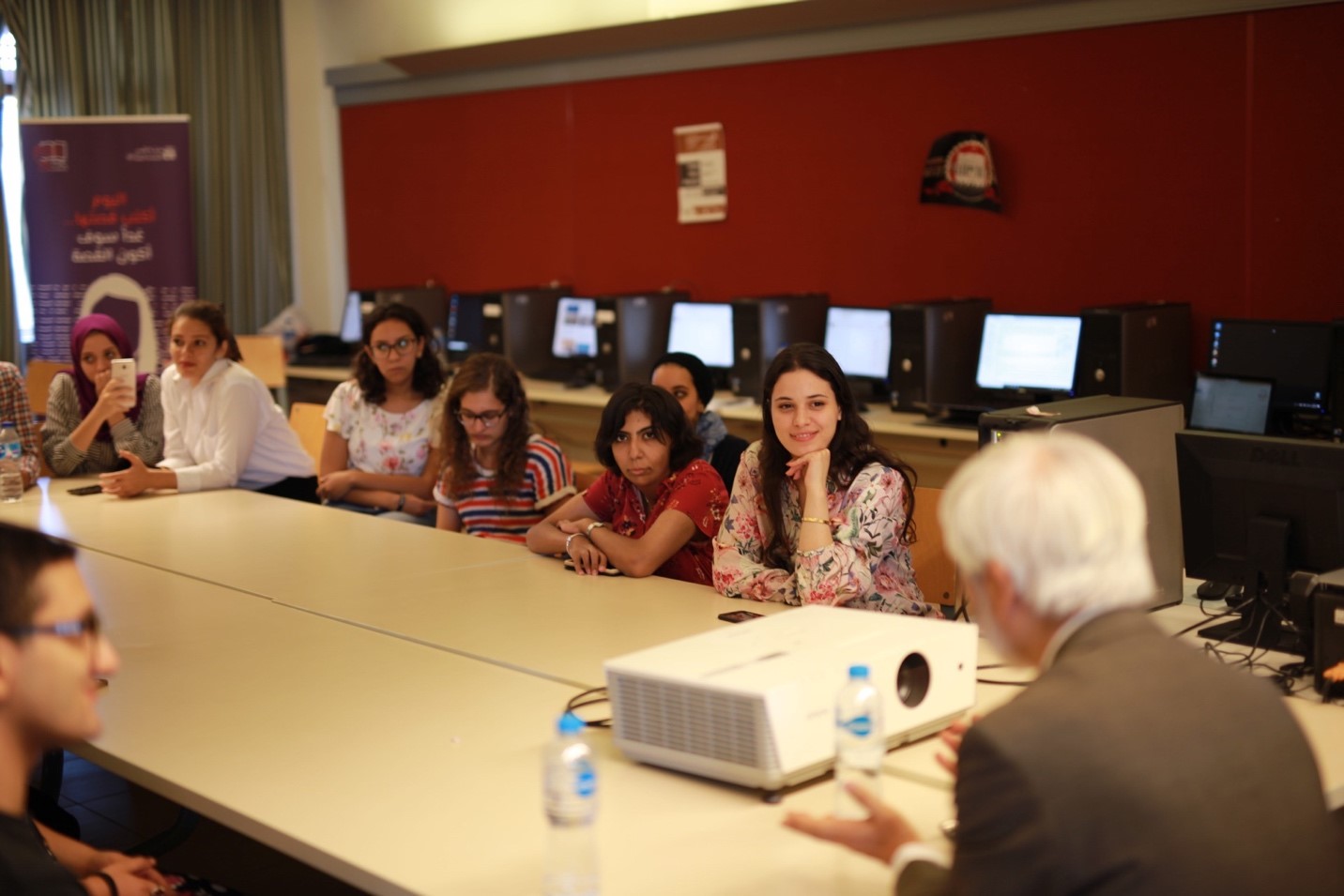Women’s contribution to ICTs highlighted during Digital Inclusion Week
Date:

Cairo.- “Whether you are a regular user or a software developer using computers or the internet, you have a woman to thank for creating this technology,” said Emad Karim, Advocacy, Youth and Innovation Specialist at UN Women Regional Office for the Arab States, at the Digital Inclusion Week event, 23-28 September 2018 organized by the United Nations Educational, Scientific and Cultural Organization (UNESCO) and the International Telecommunication Union (ITU) with support from UN Women.
In 1843, Ada Lovelace became the first programmer by designing the first computer algorithm and explaining how it would work on Charles Babbage’s analytical engine. A hundred years later, in 1942, the actress and self-taught inventor Hedy Lamarr, came up with the frequency-hopping technology that would later lead to the invention of wireless technologies like Wi-Fi and Bluetooth. In 1945, Jean Bartik and five other women developed and codified many of the foundations of software programming while working on ENIAC, one of the first electronic computers created. However, the six women were not invited to the dinner celebration for the completion of the project. In 1952, Admiral Grace Hopper, created in her spare time one of the world’s first compilers, a technology that transforms computer code written in one programming language. Her creation led to the development of COBOL, one of the first computer programming languages, and which is still used to this day.
As part of Digital Inclusion Week 2018, UN Women’s youth-led initiative HerStory organized an “editathon” focusing on women’s digital inclusion. During the session, 20 volunteers translated, wrote and edited 65 articles in Arabic related to the contribution of women to Information and Communication Technologies (ICTs) including the Digital Divide, Cyberbullying, Women in STEM fields, Women in NASA, Black Girls Code, and Digital rights among others.
While editing Wikipedia articles about the history of women in ICTs, volunteers discovered, that when videogame consoles hit the markets in the 1980’s as toys, their makers faced a simple but critical question: whether to market them as toys for girls or boys. Instead of offering the video games for everyone, they chose to target boys. “Children from that era grew up carrying the biased conception that technology is for boys, not girls,” said May Hashem, HerStory Co-Founder.
“Being part of HerStory editathon during the Digital Inclusion Week was an opportunity to learn about the digital divide; 27 years after the creation of the world wide web, the gender gap persists both online and offline. ICT is the future and women shouldn't be left out of it” said Zeina Mohammed, HerStory volunteer.

“We welcome the opportunity to join forces with ITU and UN Women’s HerStory initiative to work with young women to develop key digital skills and competencies. Together, we are better positioned to help change mindsets, support empowerment and promote the participation of women in shaping and defining the digital landscape” said Dr. Ghaith Fariz, Director of UNESCO’s Regional Bureau for Sciences in the Arab States.
ICTs have the potential to advance women’s rights in the economic and social spheres as they can be leveraged for women’s personal security and better access to education, jobs, financial inclusion, access basic healthcare information, and new means of transportation and services from the shared economy.
Digital Inclusion Week, an initiative of UNESCO and ITU with the support of UN agencies including UN Women, aimed to raise awareness of the importance of digital inclusion and highlight ongoing initiatives that are supporting advancements in the Arab States region towards knowledge societies and a digital economy. The Digital Inclusion Week was disseminated on social media using the hashtags #IDUAI, #DigitalInclusionWeek and #IFAP.
HerStory is a youth-led initiative, supported by the UN Women ROAS to produce and disseminate knowledge about gender equality issues and women and girls’ lives and contributions. HerStory is about recording human experiences from a feminist perspective, emphasizing the role of women and address the absence and exclusion of women from historical and public records. played in history, politics, science, technology, leadership, and religion.